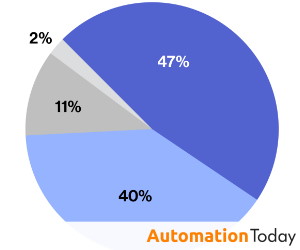
Nearly half of U.S. executives indicated they are comfortable having an AI Agent make decisions and complete tasks for customers. For less risky tasks, according to a new report, the percentage was much higher. For riskier tasks? Maybe still too high, the report says.
The study, commissioned by AI platform provider NLX, found that more than two thirds of those polled would feel comfortable having agentic AI plan and book a trip for a customer or grade a school paper. For task that are perceived has having more downside risk, including prescribing medication or air traffic control, those percentages dropped significantly (22 percent and 14 percent respectively).
But even that many executives supporting AI agents for riskier responsibilities is a problem, according to NLX CEO and co-founder Andrei Papancea.
“The fact that a non-trivial amount of executives at enterprise organizations are fine having agentic AI prescribe medicine or control air traffic shows a lack of understanding of the current capabilities of the technology,” said Papancea. “With today’s AI error rates, even the most conservative estimates would translate to several catastrophic events and deaths per day with those two use cases alone.”
When asked to identify what kind of agentic AI has the most potential to improve customer experiences, RPA led the way with 35 percent of those polled along with conversational experiences (35 percent) and autonomous backend systems like financial trading or security issue resolution (28 percent).

